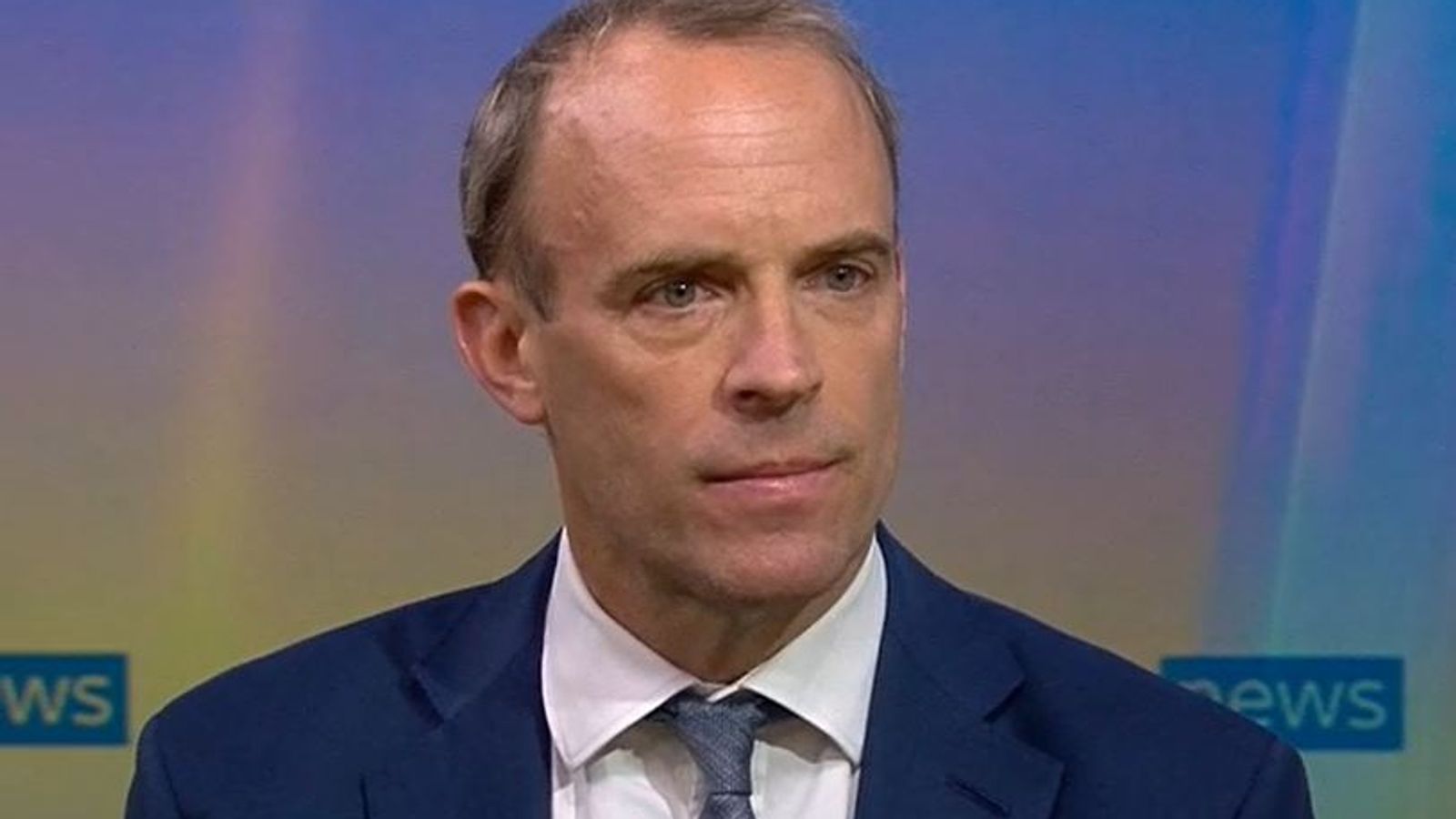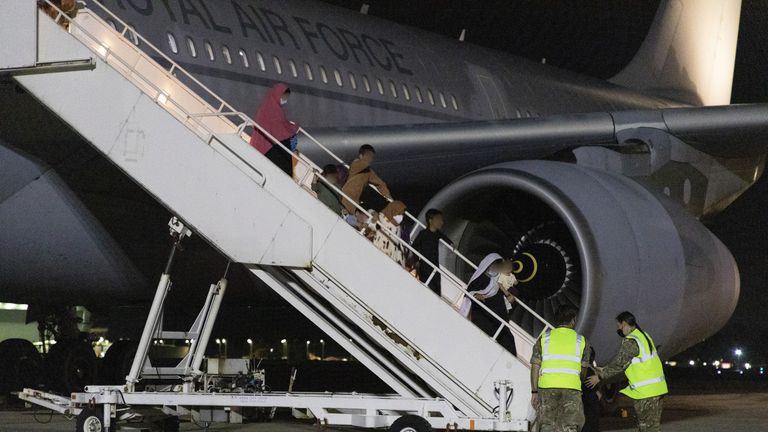Dominic Raab has admitted that with the “benefit of hindsight” he would have come back from holiday earlier amid the Taliban takeover of Kabul.
Speaking to Sky News in his first TV interview since the crisis unfolded, the foreign secretary said it is “nonsense” to say he was “lounging around on the beach all day” while on his holiday.
He faced calls to quit last week after it emerged he remained on his luxury holiday in Crete instead of coming back to deal with the Afghanistan crisis.
“The stuff about me being lounging around on the beach all day is just nonsense,” he said.
“The stuff about me paddleboarding, nonsense, the sea was actually closed, it was a red notice.
“I was focused on the Cobra meetings, the Foreign Office team, the director and the director general, and the international engagement.”
Mr Raab added that about 2,000 people have been flown back to the UK from Kabul airport in the last 24 hours and that “the system is operating at full speed”.
“We will use every last remaining hour and day to get everyone we can back, the British nationals, the Afghans who worked so loyally for us, we are getting the Chevening scholars back, also women’s rights defenders and journalists.”
He added: “Mono-nationals, so single-nationality UK who have got documentation, the lion’s share, almost all of them that want to come out have been brought home.
“The ones that are remaining, and we have done an amazing job, two and a half thousand UK nationals if you go back to April… what remains are rather complex cases, large family units where one or other may be documented or may be clearly a national, but it’s not clear whether the rest of them are.”
When asked about reports the airport could switch back to allowing people to leave on civilian aircraft rather than military flights, Mr Raab said: “We do engage with the Taliban militarily on the ground, and in Doha with the political representation.
“We would like to see Kabul airport go back to being functional. That will require the security on the ground, it will require it to be done safely, and of course it will require the Taliban to live up to their assurances about allowing safe passage out.
“They’ve actually so far tried to be constructive, as we have seen with the numbers we have got, and tried to be constructive in their own way.
“And what we have then got to do is test them beyond the withdrawal date, will they still allow safe passage, as they have undertaken, will they allow humanitarian groups the permissive environment to be able to operate?
“So, there is a next stage of engagement, not recognition, engagement with the Taliban, and we will hold them very clearly to the assurances that they are already stating.”
Subscribe to the Daily podcast on Apple Podcasts, Google Podcasts, Spotify, Spreaker
Mr Raab added that time will be taken to withdraw the UK military operation in Afghanistan.
“The military planners will work out how much time they need to withdraw their equipment, their staff, and what’s really important is we will make the maximum use of all the time we have left,” he said.
The Taliban has put an exit date of 31 August for all foreign evacuations.
And after Boris Johnson failed to secure an extension to a the US deadline for all western forces to leave, reports have suggested UK evacuation flights from Kabul may have to stop this week.
The Guardian newspaper reported on Tuesday that the last Royal Air Force aircraft carrying Afghans to safety from Kabul airport could even be in the next “24 to 36 hours”.
But defence sources described the timeline as speculative and said it was not “set in stone”.
A team of more than 1,000 British troops and diplomats running the UK’s evacuation mission on the ground will need a period of time to pack up their equipment and depart ahead of the final US exit date of 31 August.
It means that evacuation flights for Afghan civilians desperate to flee the country after the Taliban takeover will have to stop at least a number of days before then.
The Washington Post reported on Tuesday that US troops have started to pull out of Kabul already – but the tempo of flights and the number of people being airlifted to safety remains high.
More than 9,200 people – British nationals as well as Afghans who have worked with British troops and diplomats over the past two decades but are now in danger – have been flown to safety in the UK since 13 August as part of what has been dubbed Operation Pitting.


